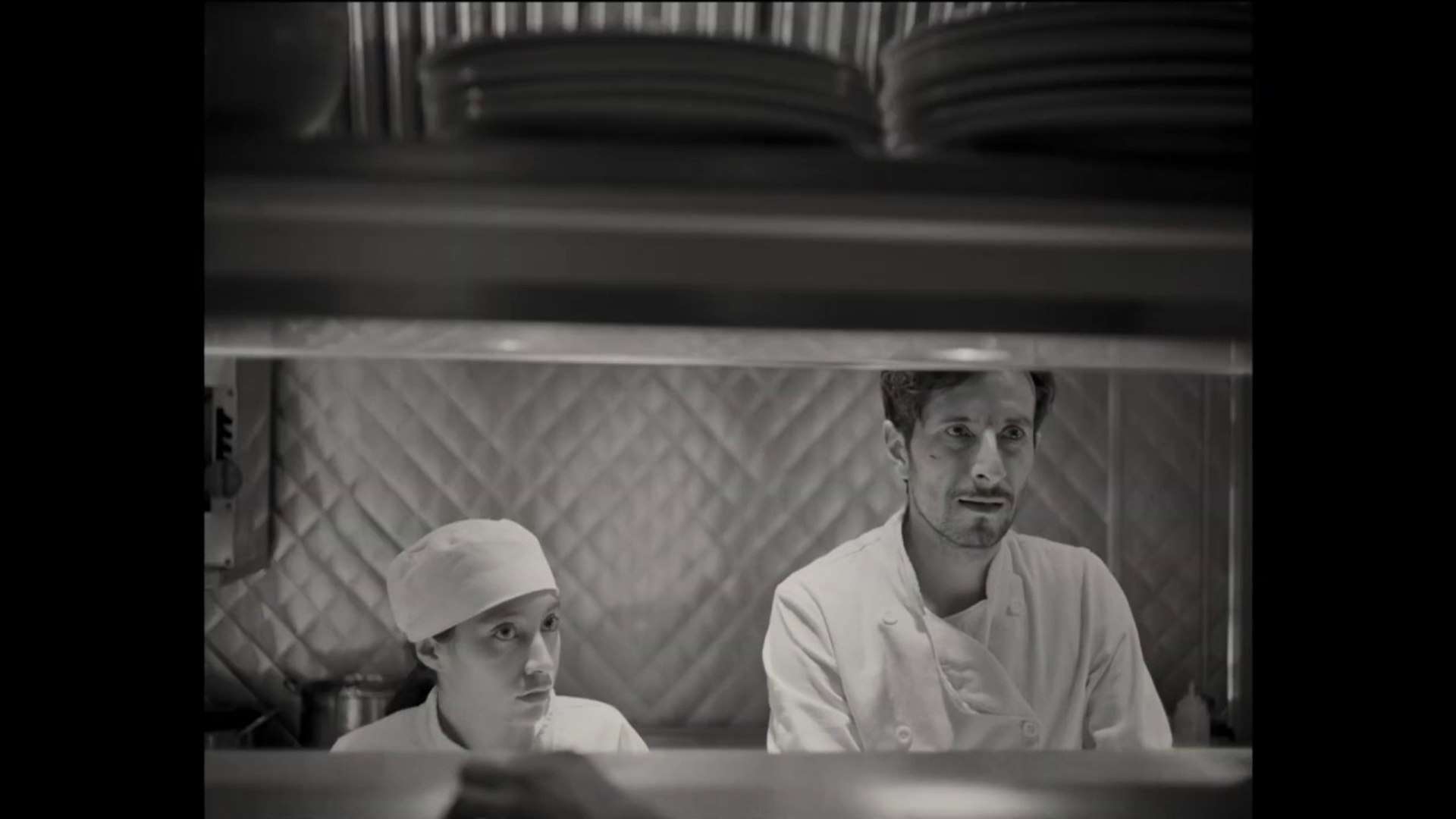Alonso Ruizpalacios’s “La Cocina” (English Title: The Kitchen), adapted from Arnold Wesker’s play The Kitchen, is a feverish live-wire immersion into a restaurant serving tourists at Times Square. Opening with the arrival of a young Mexican woman, Estella (Anna Diaz) seeking a cook’s job at the restaurant The Grill, there’s a note of anticipation tempered with grungy realism. But she’s not the primary character in the narrative, just an entry point. Quickly, the film swerves into one of the other cooks, Pedro (Raúl Briones), who shares a family history with Estella though initially he struggles to recall her. Their families have known each other since they were kids.
Pedro is a magnificent flirt, with an easy way of skidding around another’s sour mood by dialing up his casual humor and allure. In one of the most sexually bristling scenes, he pacifies his pregnant white American girlfriend, Julia (Rooney Mara) who waitresses in the kitchen up front. Soon, a crisis erupts. Money’s missing from the restaurant owner’s register. Suspicion is directed to Julia, who has been heard talking about how badly she needs money for the abortion.
“La Cocina” bustles with frantic energy. In the cramped space of the kitchen, there’s no moment to spare. At one point the kitchen turns into an overflowing mess though the work doesn’t slow down even by a notch. But is it too much to ask for a little bit of humanity? Estella asks. It’s a ruthless business where hustle is the only way to move forward by which a safer, stable future can be ushered in. There’s little kindness or consideration of the other. The rules are merciless, one tearing the other down if it ensures them some sort of anchor. Ruizpalacios plunges us directly into this world, seething with chaos, hurt, and rejection, and desperately latches onto dreams.

The kitchen is a microcosm of the cosmopolitan-ness of America but the film doesn’t reflect it in a celebratory, pompous manner. It is cautious of illustrating differences and conflicts. Not everyone gets on well with the other. There are ample ego clashes and confrontations and wilful mockeries tossed around. Pedro has bad blood with a white American cook in the kitchen. The atmosphere can be quite vicious, and hostile, and surviving in it demands its own set of aggressive artillery. Juan Pablo Ramirez’s camera glides between the kitchen space and the restaurant at The Grill. Only sparingly does the film wander out of these stuffy enclosure-like spaces into the open.
The film derives its intensely propulsive energy also from Briones’ performance. The actor channels incredible charisma as a man capable of both immense, disarming charm and equally exasperating recklessness. He is impulsive but tries to rein it in as much as he can. It isn’t tough to foresee the gradual, catastrophic unraveling that grows to determine his arc. Pedro wants the baby. He sees it as a hopeful way out of their mucky circumstances, something that can bring a dash of joy and perhaps help him and his girlfriend turn a fresh leaf. Julia is more pragmatic. She knows perfectly well neither of them are in a situation where they can raise a child. The relationship is too rocky; both of them can just barely scrape out their own living let alone bring the responsibility of a child into their lives.
“La Cocina” has these long, silky takes flowing through the spaces with agility, easily disguising complex orchestrations of movements. The energy is almost always amped up, except for when the couple steals a few intimate moments away from the hubbub. There’s also a generous breather of a scene where the cooks share their dreams. So many of them feel precarious. It’s in these grounded moments that “La Cocina” finds pockets of unsentimental authenticity and ache. You wish the film tapped into such introspective, revealing snatches more but it is eager to rush forth into an overwrought climax which also manages to hit wrenching final notes. This is a cynical, despairing film, wistfully aware of the shattered illusion America poses to immigrants.




![A Private War [2018] Review: A Substandard Biopic Saved By Rosamund Pike’s Strong Act](https://79468c92.delivery.rocketcdn.me/wp-content/uploads/2019/02/A_Private_War_Review-768x431.jpg)


